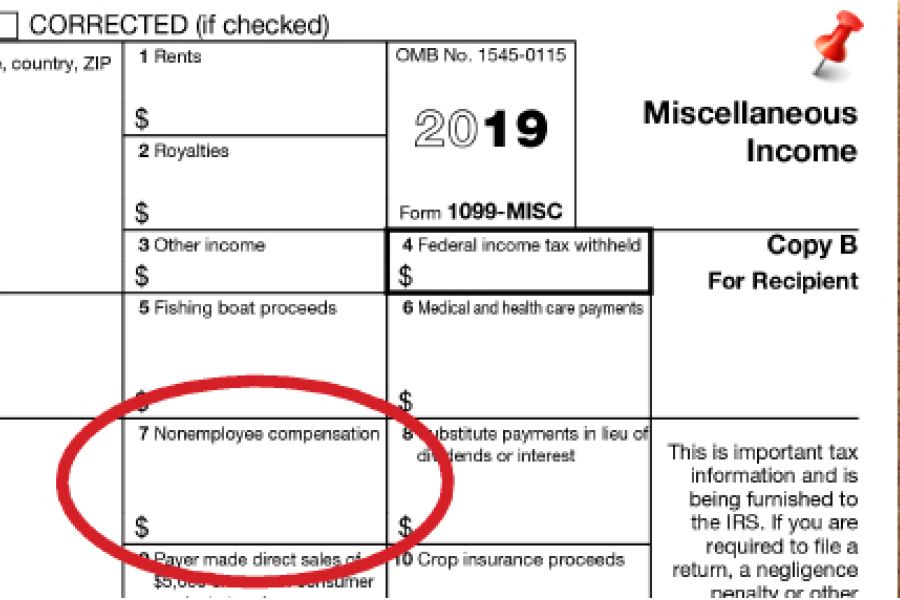How much can your employees contribute to 401(k) plans this year? How much do employees have to earn in 2020 before they can stop paying Social Security tax? An array of tax limits affecting businesses are annually indexed for inflation, and many have increased for 2020. Here are some that may be important to you and your business. Social Security tax The amount of employees’ earnings that are subject to Social Security tax is capped for 2020 at $137,700 (up from $132,900 for 2019). Deductions Section 179 expensing: Limit: $1.04 million (up from $1.02 million for 2019) Phaseout: $2.59 million (up from $2.55 million) Income-based phase-out for certain limits on the Sec. 199A qualified business income deduction begins at: Married filing jointly: $326,600 (up from $321,400) Married filing separately:...

This year, the optional 2020 business mileage rates used to calculate the deductible costs of operating an automobile for business decreased by one-half cent, to 57.5¢ per mile. As a result, you might claim a lower deduction for vehicle-related expense for 2020 than you could for 2019. Calculating your deduction Businesses can generally deduct the actual expenses attributable to business use of vehicles. This includes gas, oil, tires, insurance, repairs, licenses and vehicle registration fees. In addition, you can claim a depreciation allowance for the vehicle. However, in many cases depreciation write-offs on vehicles are subject to certain limits that don’t apply to other types of business assets. The cents-per-mile rate comes into play if you don’t want to keep track of actual vehicle-related expenses. With this approach,...
As you’ve probably heard, a new law was recently passed with a wide range of retirement plan changes for employers and individuals. One of the provisions of the SECURE Act involves a new requirement for employers that sponsor tax-favored defined contribution retirement plans that are subject to ERISA. Soon, employers must disclose retirement income to employees. Specifically, the law will require that the benefit statements sent to plan participants include a lifetime income disclosure at least once during any 12-month period. The disclosure will need to illustrate the monthly payments that an employee would receive if the total account balance were used to provide lifetime income streams, including a single life annuity and a qualified joint and survivor annuity for the participant and the participant’s surviving...
A significant law was recently passed that adds tax breaks and makes changes to employer-provided retirement plans. If your small business has a current plan for employees or if you’re thinking about adding one, you should familiarize yourself with the new rules. The Setting Every Community Up for Retirement Enhancement Act (SECURE Act) was signed into law on December 20, 2019 as part of a larger spending bill. Here are three provisions of interest to small businesses which helps secure employees retirement. Employers that are unrelated will be able to join together to create one retirement plan Beginning in 2021, new rules will make it easier to create and maintain a multiple employer plan (MEP). A MEP is a single plan operated by two or more unrelated employers....
While you were celebrating the holidays, you may not have noticed that Congress passed a law with a grab bag of provisions that provide tax relief to businesses and employers. The “Further Consolidated Appropriations Act, 2020” was signed into law on December 20, 2019. It makes many changes to the tax code, including an extension (generally through 2020) of more than 30 provisions that were set to expire or already expired. Two other laws were passed as part of the law (The Taxpayer Certainty and Disaster Tax Relief Act of 2019 and the Setting Every Community Up for Retirement Enhancement Act). Here are five highlights of tax laws passed at year-end. Long-term part-timers can participate in 401(k)s Under current law, employers generally can exclude part-time employees (those who work...
In its 2018 decision in South Dakota v. Wayfair, the U.S. Supreme Court upheld South Dakota’s “economic nexus” statute, expanding the power of states to collect sales tax from remote sellers. Today, nearly every state with a sales tax has enacted a similar law, so if your company does business across state lines, it’s a good idea to reexamine your post-Wayfair sales tax obligations. What’s nexus? A state is constitutionally prohibited from taxing business activities unless those activities have a substantial “nexus,” or connection, with the state. Before Wayfair, simply selling to customers in a state wasn’t enough to establish nexus. The business also had to have a physical presence in the state, such as offices, retail stores, manufacturing or distribution facilities, or sales reps. In Wayfair, the...
If your company faces the need to “remediate” or clean up environmental contamination, the money you spend can be deductible on your tax return as ordinary and necessary business expenses. There are however "timing difference" types of tax implications of environmental cleanup. You want to claim the maximum immediate income tax benefits possible for the expenses you incur but that may not always be possible. These expenses may include the actual cleanup costs, as well as expenses for environmental studies, surveys and investigations, fees for consulting and environmental engineering, legal and professional fees, environmental “audit” and monitoring costs, and other expenses. Current deductions vs. capitalized costs Unfortunately, every type of environmental cleanup expense cannot be currently deducted. Some cleanup costs must be capitalized. But, generally, cleanup costs are...
It's 2020, and with it your business may be required to comply with rules to report amounts paid to independent contractors, vendors and others. 1099-MISC reporting requirements may mean you have to send 1099-MISC forms to those whom you pay nonemployee compensation, as well as file copies with the IRS. This task can be time consuming and there are penalties for not complying, so it’s a good idea to begin gathering information early to help ensure smooth filing. Deadline There are many types of 1099 forms. For example, 1099-INT is sent out to report interest income and 1099-B is used to report broker transactions and barter exchanges. Employers must provide a Form 1099-MISC for nonemployee compensation by January 31, 2020, to each noncorporate service provider who was...
Here's a 2020 Q1 tax calendar with some of the key tax-related deadlines affecting businesses and other employers. Keep in mind that this list isn’t all-inclusive, so there may be additional deadlines that apply to you. Contact me to ensure you’re meeting all applicable deadlines and to learn more about the filing requirements. January 31 File 2019 Forms W-2, “Wage and Tax Statement,” with the Social Security Administration and provide copies to your employees. Provide copies of 2019 Forms 1099-MISC, “Miscellaneous Income,” to recipients of income from your business where required. File 2019 Forms 1099-MISC reporting nonemployee compensation payments in Box 7 with the IRS. File Form 940, “Employer’s Annual Federal Unemployment (FUTA) Tax Return,” for 2019. If your undeposited tax is $500 or less, you...
Given the escalating cost of employee health care benefits, your business may be interested in providing some of these benefits through an employer-sponsored Health Savings Account (HSA). For eligible individuals, setting up a Health Savings Account offers a tax-advantaged way to set aside funds (or have their employers do so) to meet future medical needs. Here are the key tax benefits: Contributions that participants make to an HSA are deductible, within limits. Contributions that employers make aren’t taxed to participants. Earnings on the funds within an HSA aren’t taxed, so the money can accumulate year after year tax free. HSA distributions to cover qualified medical expenses aren’t taxed. Employers don’t have to pay payroll taxes on HSA contributions made by employees through payroll deductions. Who is...











